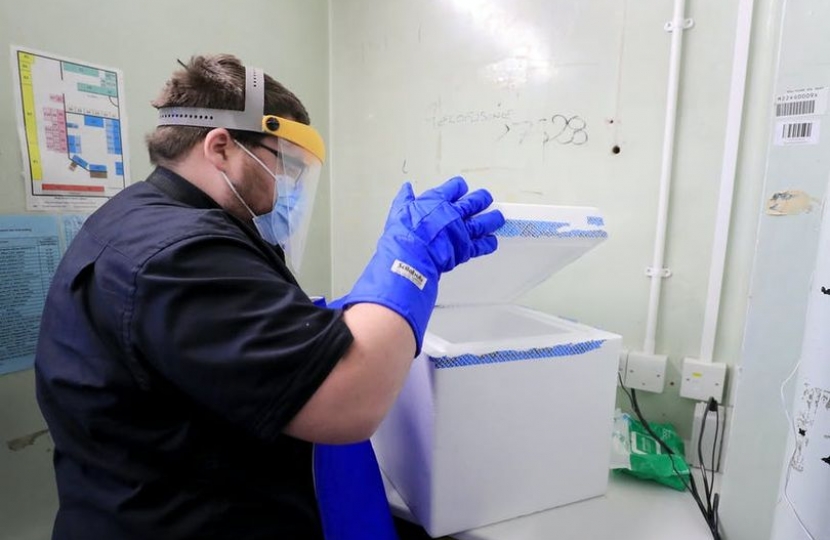
I am delighted that Croydon University Hospital is gearing up to start coronavirus vaccinations this week which will be the largest immunisation programme in history. This is fantastic news for the country and I am particularly delighted that the programme will be rolled out here in Croydon to protect its residents as part of the first wave. The Pfizer vaccine will be a priority for people aged 80 and over, as well as care home workers and high risk NHS workers. Croydon is one of 50 hubs across the country in the first wave of vaccinations. Patients aged 80 and above who are already attending hospital as an outpatient, and those who are being discharged home after a hospital stay, will be among the first to receive the potentially life-saving jab. CUH will also begin inviting over 80s in for a jab and work with care home providers to book their staff in to vaccination clinics. Any appointments not used for these groups will be used for healthcare workers who are at highest risk of serious illness from Covid. All those vaccinated will need a booster jab 21 days later.
Health Secretary Matt Hancock said: “This coming week will be an historic moment as we begin vaccination against COVID-19. We are prioritising the most vulnerable first and over-80s, care home staff and NHS colleagues will all be among the first to receive the vaccines. We are doing everything we can to make sure we can overcome significant challenges to vaccinate care home residents as soon as possible too. I urge everybody to play their part to suppress this virus and follow the local restrictions to protect the NHS while they carry out this crucial work”.
Joint chief pharmacist, Louise Coughlan, said: “It is just incredible, obviously I can’t hold them in my hands because they are minus 70 degrees, but to know they are here and we are among the first in the country to receive the vaccine and therefore the first in the world is just amazing. I am so proud. The next stage of the vaccination programme will see more GP practices issuing the vaccine during December as well as the opening of large centres including conference centres and sporting venues. We’re delighted to be playing our part, vaccinating the most vulnerable people in our communities and ensuring the safety of our patients, our local people and our health and care professionals who have worked tirelessly throughout the pandemic.”
GPs and other primary care staff are also being put on standby to start delivering the jab. A small number of GP-led primary care networks will begin doing so during the following week (week beginning 14 December) with more practices in more parts of the country joining in on a phased basis during December and in the coming months. Vaccination centres treating large numbers of patients in sporting venues and conference centres will subsequently stand up when further supplies of vaccine come on stream.
Matthew Kershaw, Chief Executive of Croydon Health Services NHS Trust and Place Based Leader for Health said: “This is a pivotal moment for the country and for us in Croydon, as one of the first Hospital Hubs to receive the COVID-19 vaccine. We're delighted to be playing our part, vaccinating the most vulnerable people in our communities and ensuring the safety of our patients, our local people and our health and care professionals who have worked tirelessly throughout the pandemic."
Professor Stephen Powis, NHS national medical director, said: “Despite the huge complexities, hospitals will kickstart the first phase of the largest scale vaccination campaign in our country’s history from Tuesday. The first tranche of vaccine deliveries will be landing at hospitals by Monday in readiness. The NHS has a strong record of delivering large scale vaccination programmes – from the flu jab, HPV vaccine and lifesaving MMR jabs – hardworking staff will once again rise to the challenge to protect the most vulnerable people from this awful disease.”
The life-saving vaccine is typically delivered by a simple injection in the shoulder but there is a complex and difficult logistical challenge to deliver from the manufacturers Pfizer to patients. It needs to be stored at -70C before being thawed out and can only be moved four times within that cold chain before being used. NHS staff have been working over the weekend to prepare the sites and accept deliveries.



